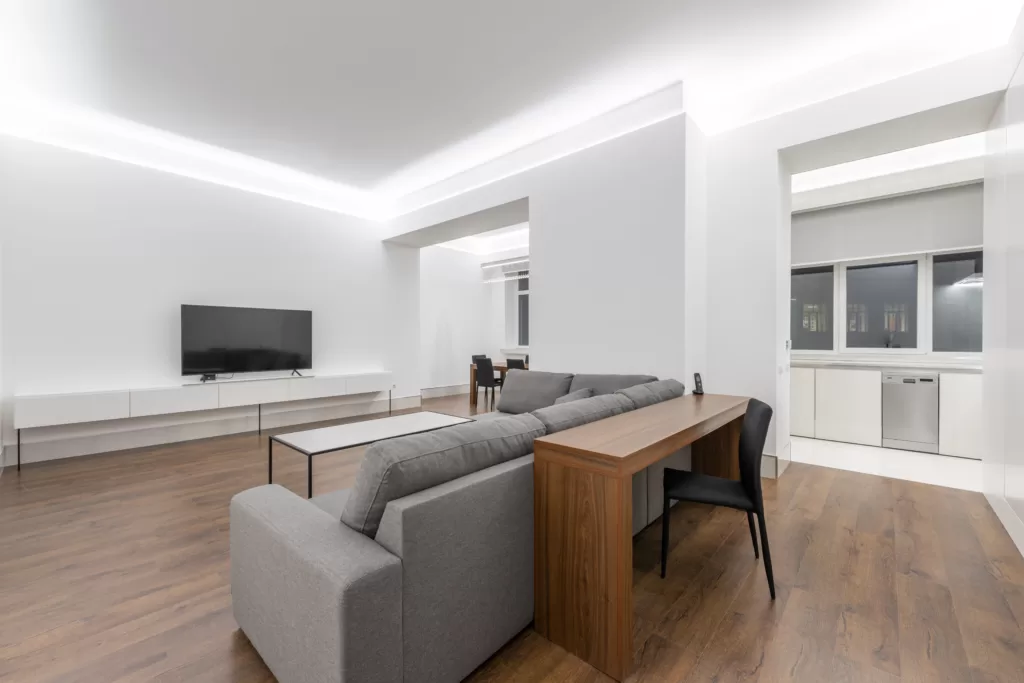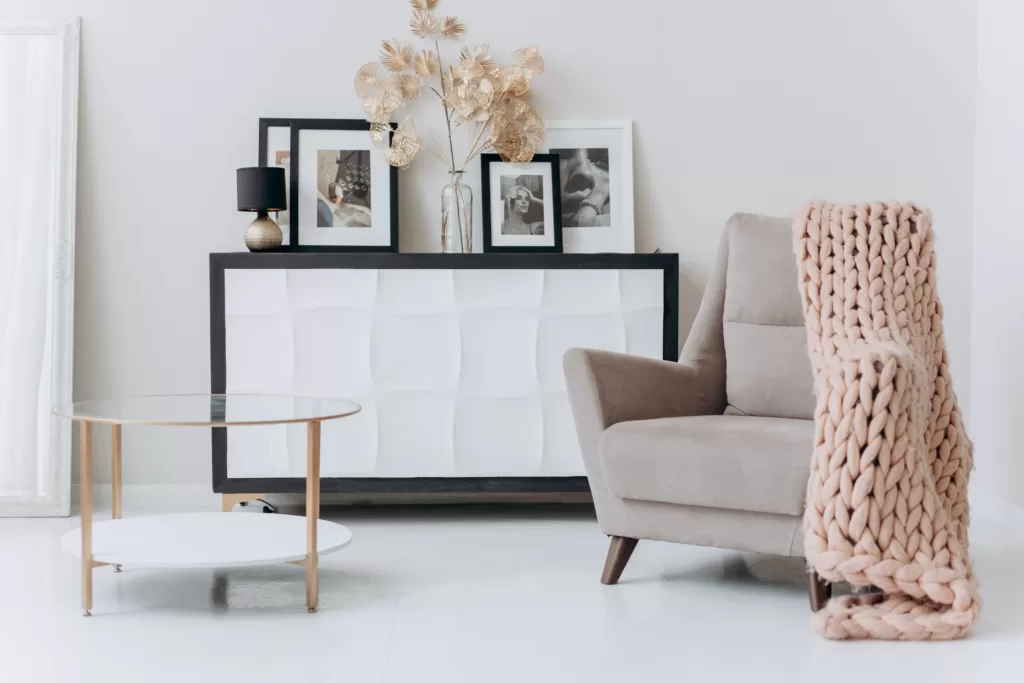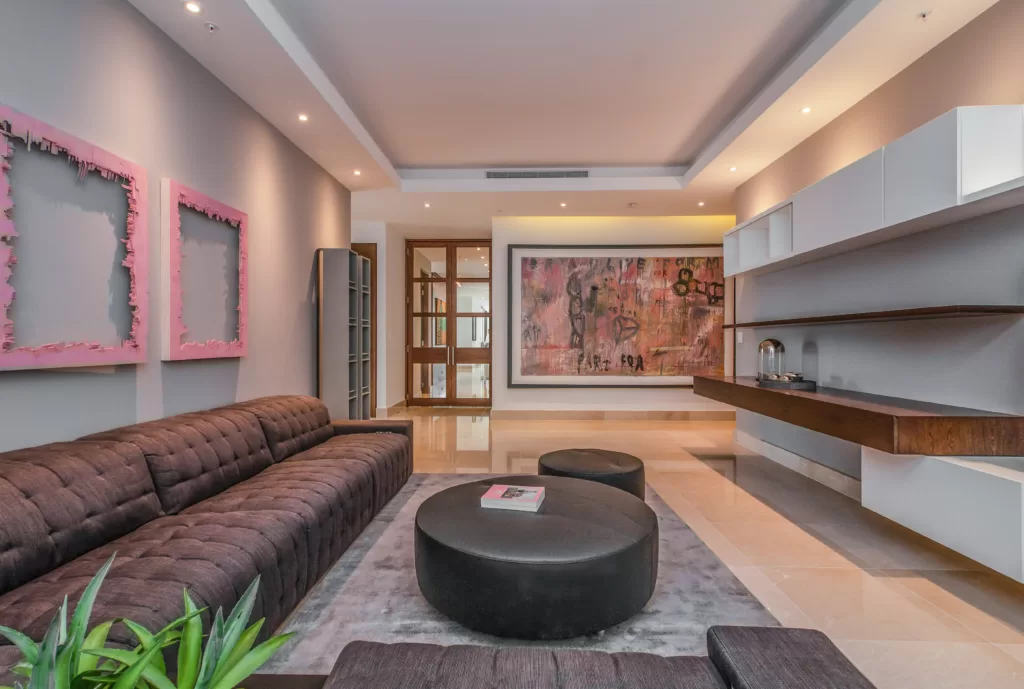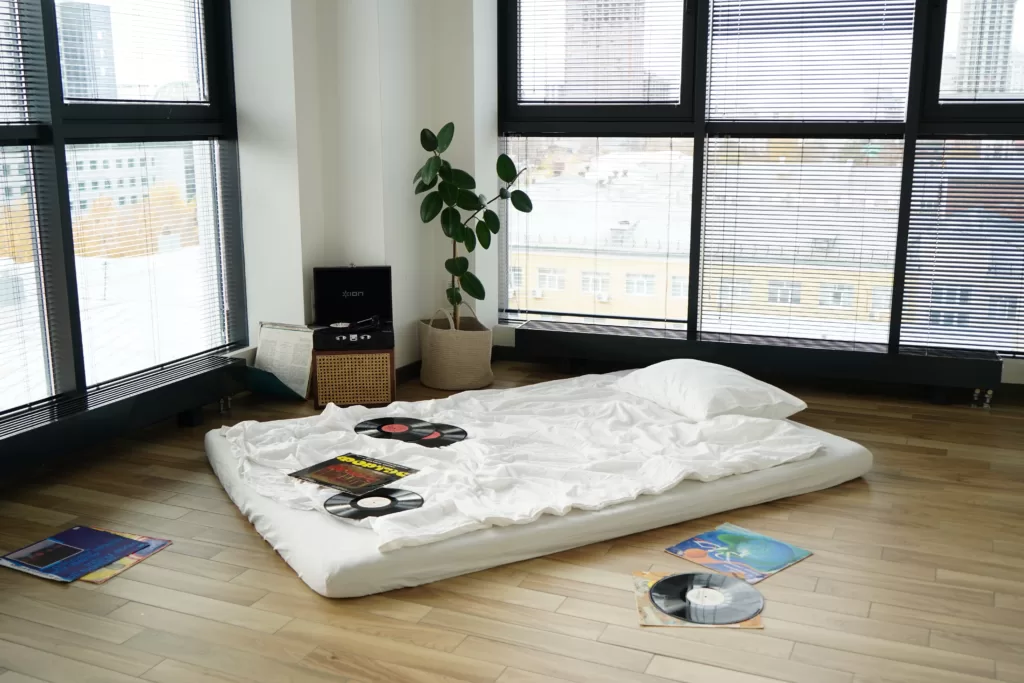Let’s understand about minimalism in interior design and how can you make the most of it? Minimalism is one aesthetic design concept that has been seemingly accepted by several homeowners for their home decor plans. The style is sleek, and subtle and yet offers a visually pleasing look and feel. The use of pastel toned colors and functional accessories helps to shape a minimalistic home decor. Also, Due to the space crunch in urban area homes and the growing need for low maintenance, minimalist interior design has gained popularity.
Modern Home with Minimalistic Interior Design Ideas
Actually, the use of minimalistic interior design helps to declutter the home, which in turn creates more space. Minimalist interior design creates a sense of openness and space even in small homes by reducing visual clutter. This makes it your flat for contemporary compact urban apartments. The simplicity and functionality align well with modern lifestyles. Decluttering to just the essentials is liberating for many people.
To ensure one can achieve minimalistic decor for their home, here are a few things you things you should follow:
Clean Line Spaces
Lines are the backbone of this design philosophy. Furniture and architectural elements embrace simplicity, with sleek and unadorned surfaces that create a sense of uniformity and order.
Neutral Color Scheme
While neutral colors, such as white, beige, and grey, are often prevalent, there is room for variation. Minimalistic interior designers encourage the use of subtle pops of color or muted tones to add depth and personality to a minimalist space. By incorporating these accents strategically, a sense of visual interest and warmth can be achieved while still maintaining the overall simplicity that defines minimalism.
Uncluttered Spaces
Functionality takes center stage in minimalist interiors. Every item within a space must serve a purpose and contribute to a clutter-free environment. Thoughtful storage solutions are incorporated to store away belongings, promoting a sense of organization and a visually uncluttered atmosphere.
Negative Spaces
Minimalist design relies on negative space – the area left intentionally empty – to create a sense of peace and tranquility. Embracing the power of empty walls and unoccupied corners allows each element within a space to stand out and be appreciated.
All is Light
Natural light is favored whenever possible, as it creates a sense of openness and enhances the clean aesthetic. How- ever, artificial lighting is carefully curated to ensure a balance between functionality and ambiance. Strategic placement of lighting fixtures, such as recessed lights or pendant lamps, can accentuate architectural details while providing the desired illumination.











Leave a Comment
You must be logged in to post a comment.